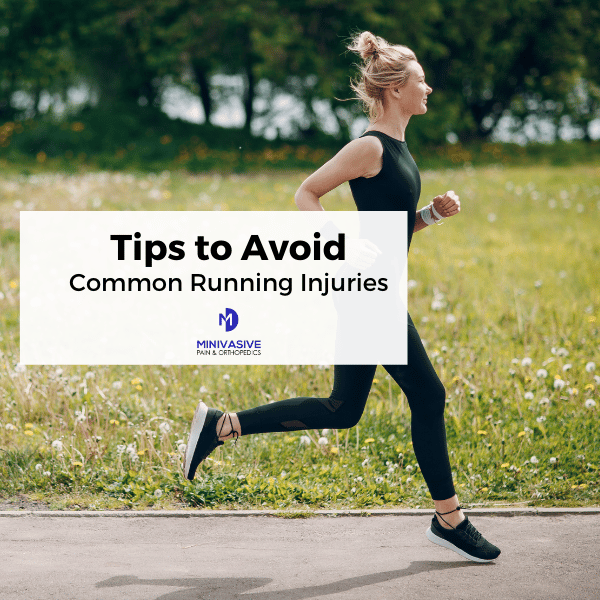Running related injuries are a common concern for both novice and experienced runners. While running offers numerous health benefits, it can also take a toll on your body if you’re not careful. In this blog, we’ll explore how to prevent and avoid common running related injuries, ensuring that your running experience remains enjoyable and injury-free.
Recognizing Running Related Injuries
Before we delve into prevention strategies, it’s crucial to understand the types of running related injuries you might encounter. These injuries can affect various parts of your body, including:
Foot and Ankle Injuries
- Plantar Fasciitis: A painful condition characterized by inflammation of the plantar fascia, which is the tissue connecting the heel to the toes. Symptoms include heel pain, especially in the morning.
- Achilles Tendinitis: This injury involves inflammation of the Achilles tendon and can cause pain in the back of the ankle. Runners may experience stiffness and discomfort during or after a run.
- Shin Splints: Often a result of overuse, shin splints cause pain along the front or inner edge of the shinbone. They are typically due to improper footwear or overtraining.
Knee Injuries
- Runner’s Knee (Patellofemoral Pain Syndrome): A common injury, this condition results from improper tracking of the kneecap, leading to pain in the front of the knee.
- Iliotibial (IT) Band Syndrome: IT band syndrome causes pain on the outer side of the knee and is often related to overuse and tightness of the IT band.
Hip and Pelvic Injuries
- Hip Bursitis: This injury results from inflammation of the bursa sac in the hip, leading to pain and discomfort around the hip joint.
- Pelvic Stress Fractures: Runners may develop stress fractures in the pelvis due to overtraining or increasing their mileage too quickly.
Upper Body Injuries
- Shoulder Pain: Improper arm swing or posture during running can lead to shoulder pain or tension.
Now that we have a clearer understanding of common running related injuries, let’s explore the ways to prevent them and keep your running journey on track.
Preventing Running Related Injuries
- Proper Footwear: Invest in a good pair of running shoes that offer the right support and cushioning for your foot type and running style. Visit a specialty running store for a professional fitting.
- Gradual Progression: Avoid the temptation to increase your mileage too quickly. Gradually build up your distance and intensity to allow your body to adapt and avoid overuse injuries.
- Stretch and Strengthen: Incorporate regular stretching and strength training into your routine. This can help prevent injuries by improving flexibility and muscle support.
- Warm-Up and Cool Down: Prior to each run, warm up with dynamic stretches to prepare your muscles and joints. After your run, perform static stretches to aid recovery.
- Listen to Your Body: Pay attention to any signs of discomfort or pain. If you experience persistent pain, it’s essential to rest and seek professional advice.
- Cross-Train: Incorporate other forms of exercise like swimming or cycling to reduce the impact on your body and work different muscle groups.
- Proper Technique: Work on your running form to minimize stress on your joints. Engage your core, maintain an upright posture, and keep your stride efficient.
- Appropriate Terrain: Be mindful of the surfaces you run on. Softer surfaces like trails or tracks can reduce the impact on your joints compared to concrete.
- Nutrition and Hydration: Maintain a balanced diet and stay hydrated. Proper nutrition can aid in recovery, and hydration is crucial for overall health.
- Rest and Recovery: Give your body adequate time to recover between runs. Rest days are just as important as your training days.
By following these prevention strategies, you can significantly reduce the risk of running related injuries and enjoy your runs with confidence and comfort.
Contact Minivasive Pain for Professional Help
If you’re currently dealing with a running related injury, it’s essential to seek professional help for proper diagnosis and treatment. Minivasive Pain specializes in addressing running related injuries and can help you get back on your feet and back on the track. Don’t let injuries hinder your passion for running; take action and reach out to Minivasive Pain today.
Running can be an incredibly rewarding and healthy activity, but it’s essential to take precautions to avoid running related injuries. With the right knowledge and care, you can enjoy the physical and mental benefits of running without the setbacks of injuries. Remember to stay mindful of your body, listen to its signals, and seek professional help when needed. By doing so, you can maintain a long and enjoyable running journey.

